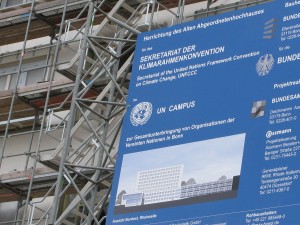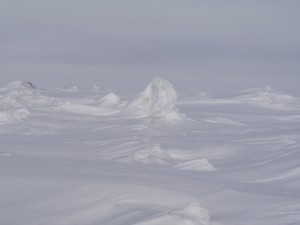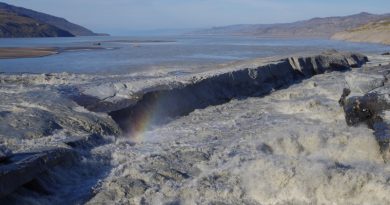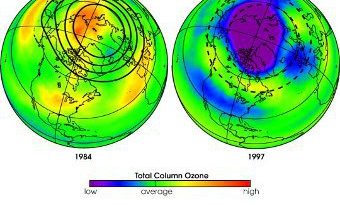Ice-Blog: Philippines, Warsaw, Arctic – join the dots
I have very mixed feelings as the UN climate conference gets underway in Warsaw just as the Philippines are devastated by what seems to have been the worst storm ever.
The experts tell us climate change is extremely likely to be increasing the severity of extreme weather events. It is not hard to see the possibility of a link. And where does the Arctic come in? Well, the only Arctic headlines at the moment would seem to be the ongoing saga of the Greenpeace activists still under arrest in Russia after the protest at the Prirazlomnaya Arctic oil rig. Connection clear?
Amongst the mixed bag of emotions I am currently shuffling are horror at the extent of the storm devastation in the Philippines, intense sympathy with the victims, helplessness in the face of the huge force of typhoon Haiyan. Then comes deep frustration, verging on anger at the failure of the world’s big emitters so far to take action to reduce emissions and avert what the world’s scientists and the UN tell us will be catastrophic climate change, if we don’t keep to the two degree target. Add to this my complete failure to understand the continuing rush to get oil from the Arctic – regardless of the fact that this would, in turn, contribute further to the vicious circle of climate change.

Some 13% of the world’s remaining undiscovered oil reserves, 30% of its gas are estimated to be in the Arctic. The higher the price of energy, the faster the ice melts, the greater the international interest in a region becoming increasingly accessible as the world continues to warm. At the same time concern is growing amongst those who see development as a threat to the sensitive environment of the High North and the lifestyles of indigenous peoples there – and an increasing risk for the global climate: the burning of more fossil fuels would further intensify global change by producing more CO2 emissions. According to the World Energy Outlook 2012, two thirds of our known fossil fuel reserves would have to remain in the earth, if the goal of limiting temperature rise to two degrees Celsius and averting catastrophic climate change is to be reached.
The harsh nature of Russia’s reaction to the Greenpeace protest at the Prirazlomnaya oil rig in the Arctic demonstrates how important the region has become for the government in Moscow. While Greenpeace has stepped up its campaign to stop oil drilling in the Arctic and have the activists and ship released, the business of Arctic exploration and development just “carries on regardless”. Rosneft, Statoil, Italy’s ENI, Exxon Mobil, Shell… are all active in the Arctic. China and India are also keen. The UK recently unveiled plans to become a hub for Arctic oil exploration. Meanwhile, Greenpeace, is campaigning for the area around the North Pole to be declared a sanctuary and protected from drilling or other industrial exploitation. In addition to environmental campaign groups, the “Fossil Free Campaign” initiated by US American Bill Mc Kibben is gaining influence, trying to persuade companies and institutions to withdraw investments from fossil fuel-related enterprises. Perhaps that will be the way to bring about a change of heart?

(Chukchi Sea, Barrow, Alaska. Pic:I Quaile)
Returning to the UN climate talks in Warsaw, my mixed bag of emotions unfortunately does not contain a lot of optimism at the moment. Maybe just a sliver of hope that all is not yet lost. But looking at host country Poland’s record as a coal country and recent statements by its political leaders insisting this would remain so, and bearing in mind that the country has consistently blocked the EU from adopting stricter climate goals (which, admittedly, appears to suit many other member states), it is hard to imagine this conference bringing much in the way of progress. While top emitter China is paying more attention to its environment and climate policies, the country’s rejection of international binding targets makes considerable progress unlikely.
It would be wrong to use the typhoon disaster in the Philippines just to attract more attention to the climate conference in Poland. Clearly getting international aid out to the region has to have top priority. But there is surely a moral imperative to act upon the warnings of our scientists that business as usual is extremely likely to increase the severity of storm and flood events, which hurt the needy worst of all? And would that not have to include the realization that burning fossil fuels is helping to melt the Arctic twice as fast as the rest of the planet – with negative effects not only on the people and ecosystems in the region, but – through feedback effects, sea level rise, increasing ocean acidity etc – on the regulation of the world climate? And thus, that investing in renewable energies and the transition to a green economy makes more sense than Arctic oil exploration?





